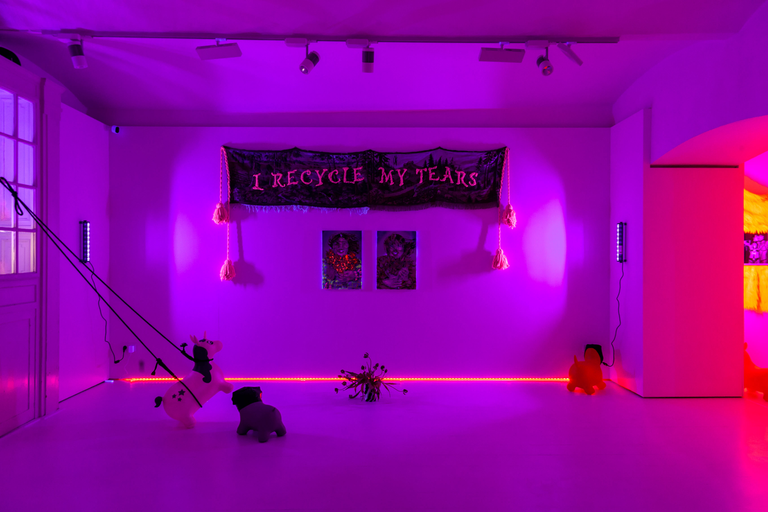
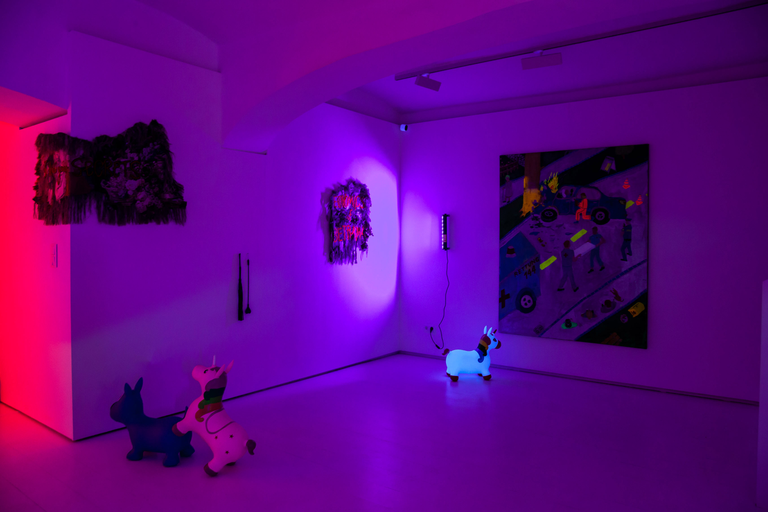
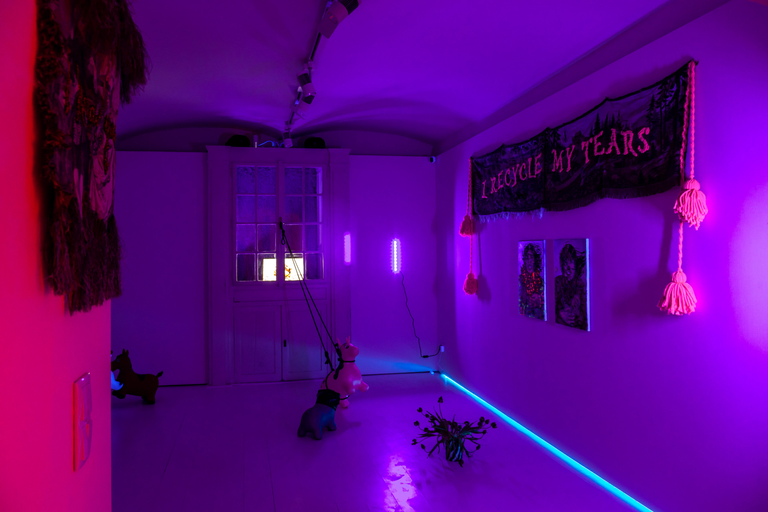
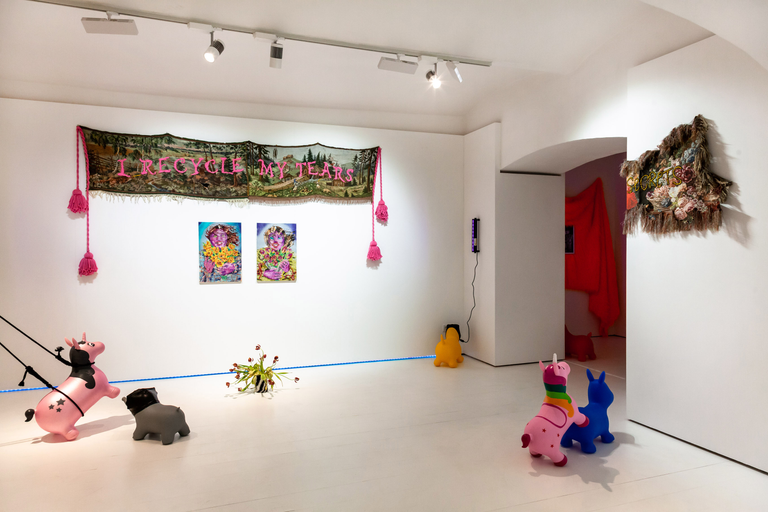
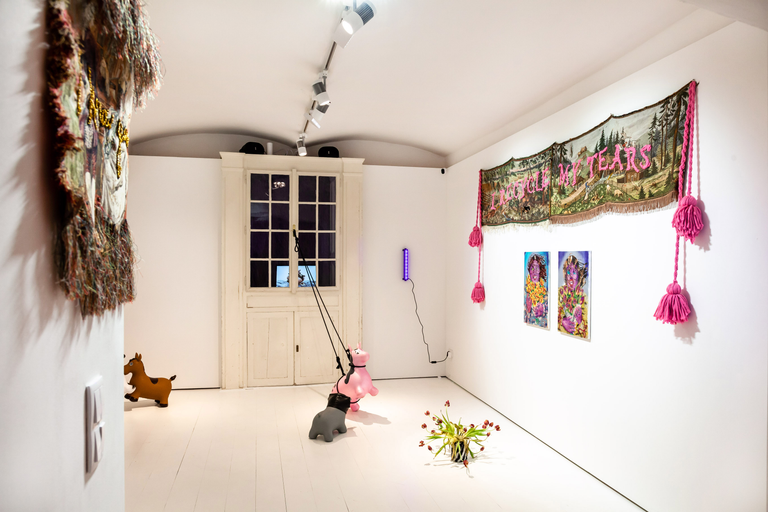
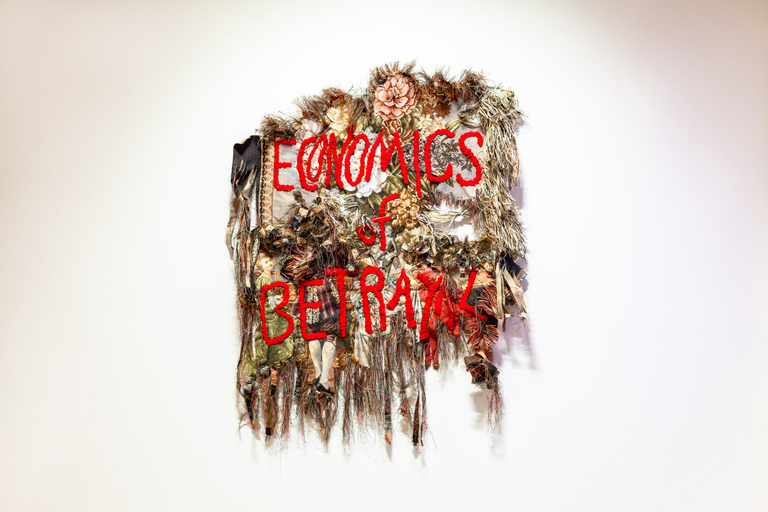
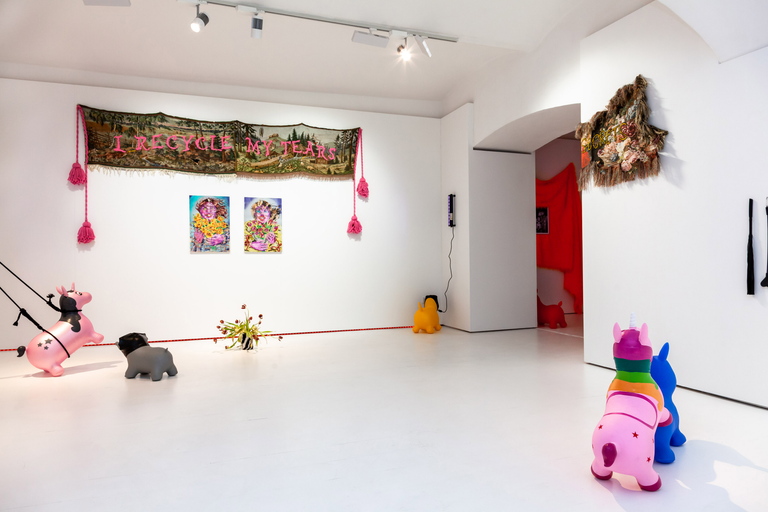
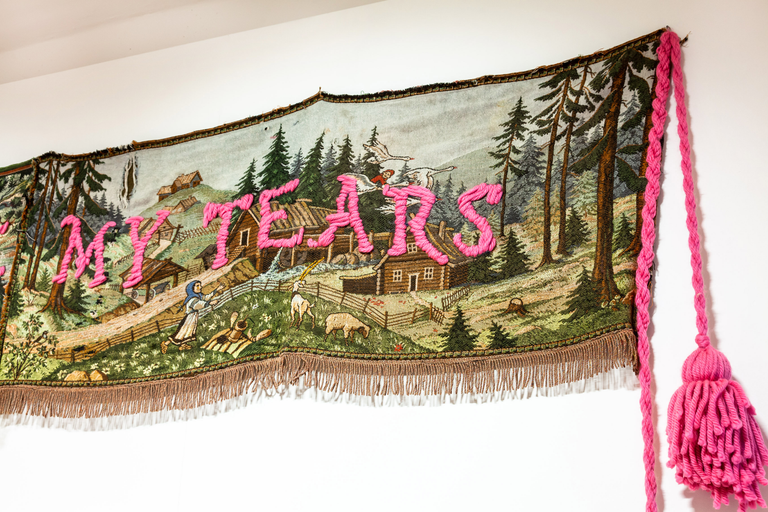
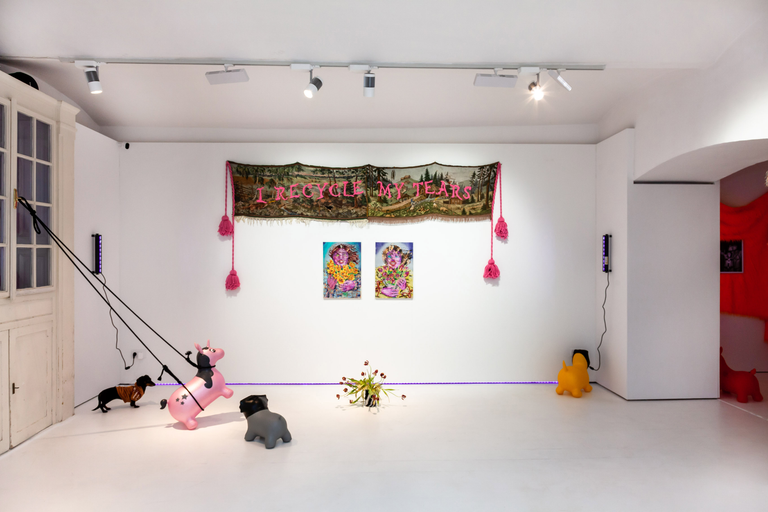
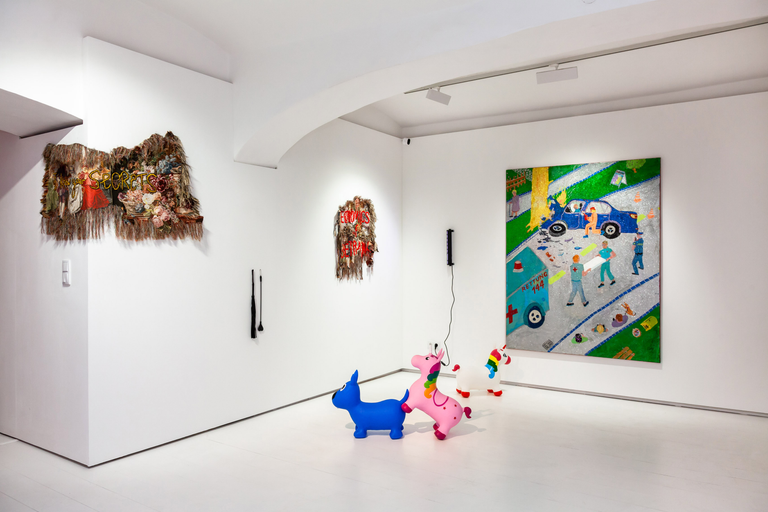
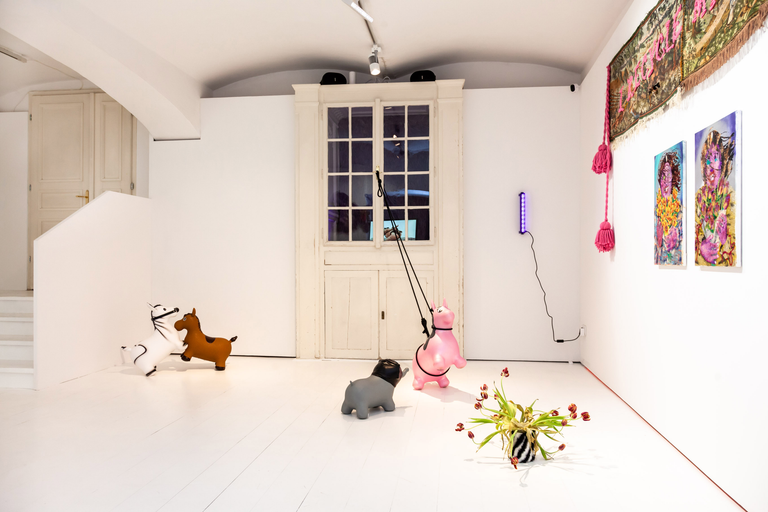
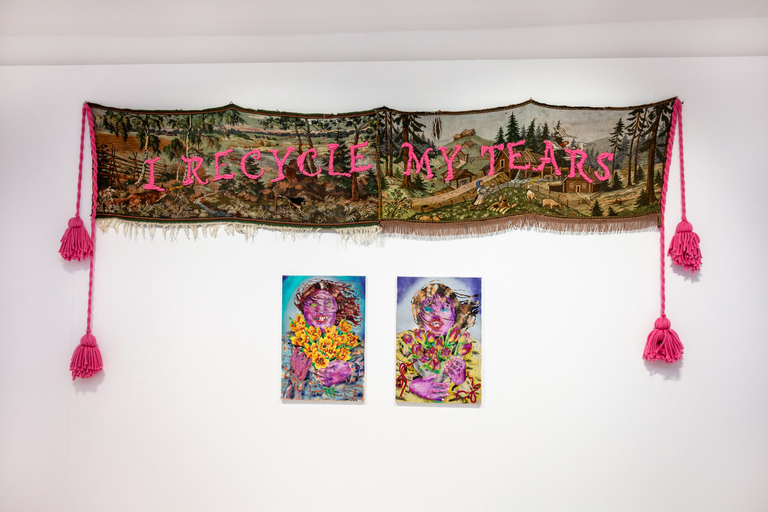
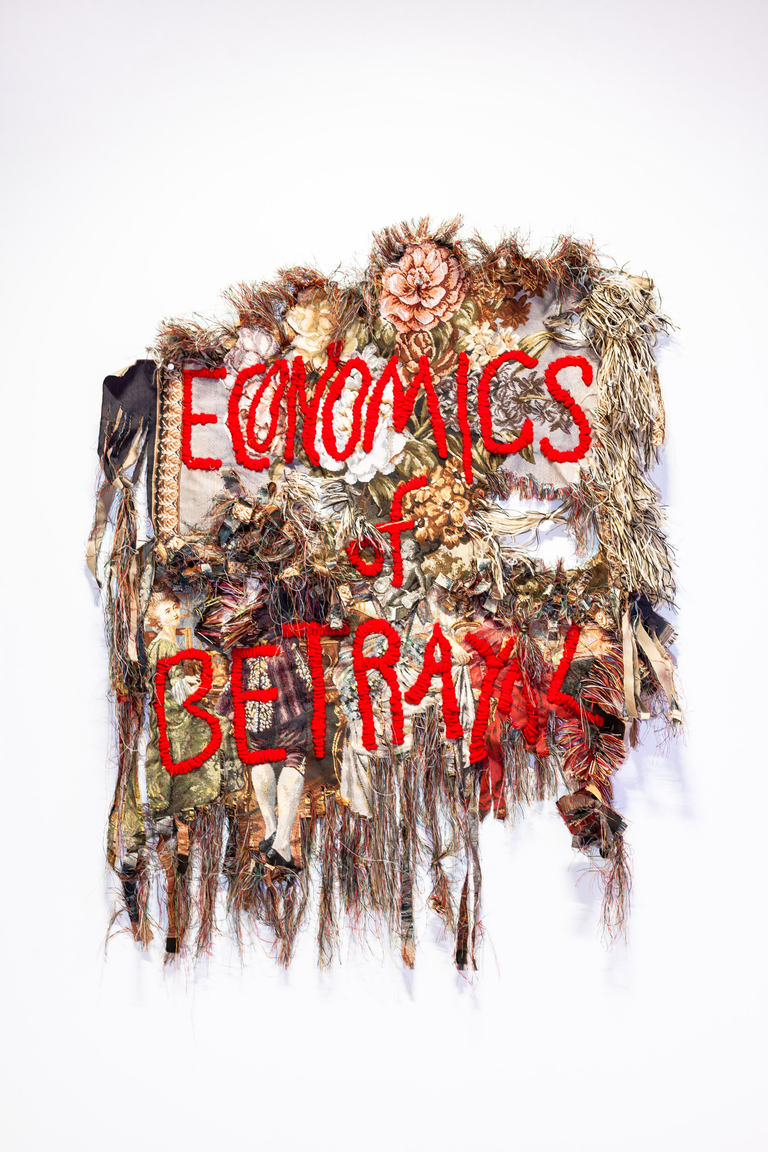
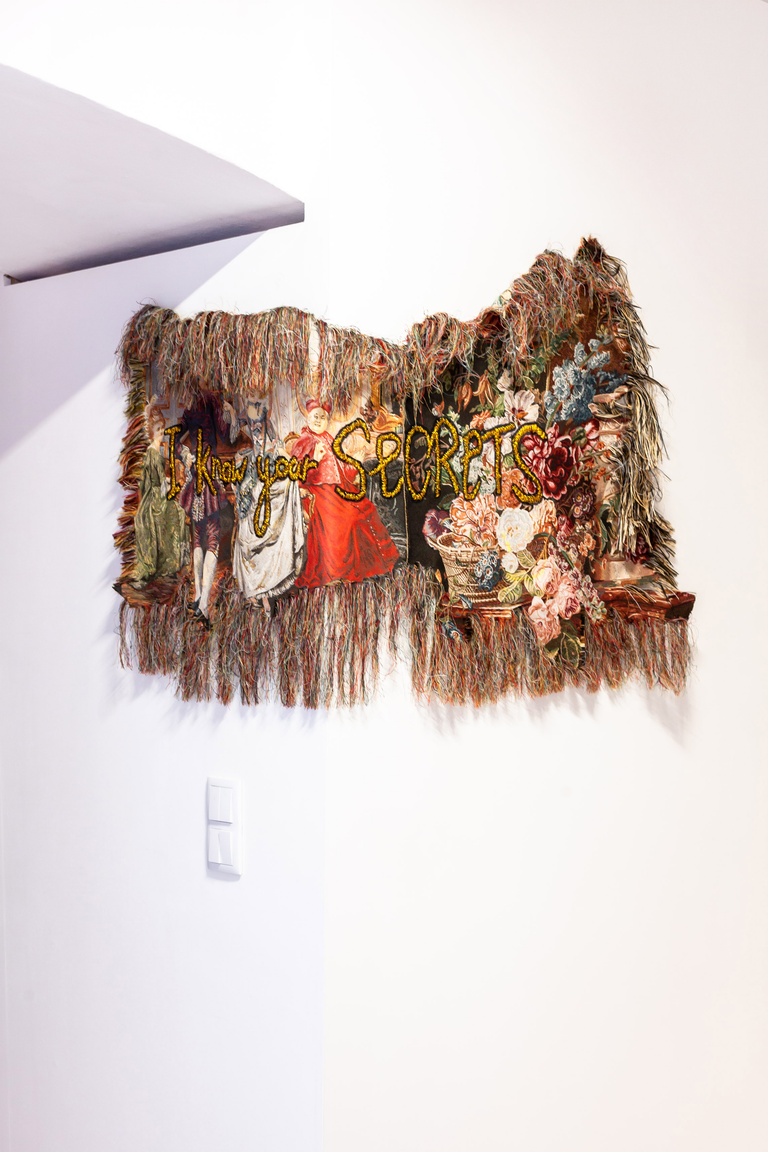
Soft Opening
Halle 13, Vienna, Austria
07.04.22
If only there were evil people somewhere insidiously committing evil deeds, and it were necessary only to separate them from the rest of us and destroy them. But the line dividing good and evil cuts through the heart of every human being. And who is willing to destroy a piece of his own heart? - Alexander Solzhenitsyn, Gulag Archipelago. 1970.
In his 1970 Nobel prize lecture writer and victim of USSR persecution, Alexander Solzhenitsyn wrote that not everything assumes a name. Some things lead us beyond words. Solzhenitsyn wrote that art can inflame even a frozen, darkened soul to a high spiritual experience. Through art, Solzhenitsyn writes, we are sometimes visited — dimly, briefly — by revelations such as cannot be produced by rational thinking.
Today the upwelling of those feelings provokes a simple question: At what cost? What price are we willing to pay to continue to ignore crimes against our sense of humanity? Forget the kayfabe of imposing astronomic financial costs on others to assuage our guilt. What price do we pay for letting the line between good and everything else creep that little bit further inside of us?
In his Nobel lecture, Solzhenitsyn openly questioned what purpose art serves against the ruthless onslaught of open violence? He pointed out that violence does not live alone. Solzhenitsyn believed violence finds its only refuge in falsehood - falsehood its only support in violence. He observed that as a result, violence does not always openly throttle the throat, more often it demands from its subjects only an oath of allegiance to falsehood, only complicity in falsehood - a rejection of feeling and rationalisation of inaction.
Despite the standing ovations, copious donations, and statements of solidarity at this moment we are collectively refusing to act directly. Are we not complicit in the violence? What price are we imposing on ourselves by not intervening? On the day Alexander Solzhenitsyn was arrested and exiled by the Soviet Union, February 12, 1974, he released the text of “Live Not by Lies” in it he laments
"We have so hopelessly ceded our humanity that for the modest handouts of today we are ready to surrender up all principles, our soul, all the labors of our ancestors, all the prospects of our descendants—anything to avoid disrupting our meagre existence."
Throughout our lives we are confronted with a precious few moments where we ask ourselves if we are prepared to surrender to the prospect of annihilation, whether abstract or tangible, to say this is "what I believe in", "this is who I am", "this what is what I feel to be right and this is what I think is wrong". It might be in moments as personal as choosing a lover or as collective as going to war. Of course, in these moments of vulnerability, we fear some sort of destruction from revealing ourselves. The choice often becomes what precious irrationality, what feelings, ethics, morals; humanity, are we prepared to annihilate within ourselves to continue to endure the status quo? How ugly are we prepared to let it, and ourselves by extension, get?
Today, on both sides of the front line in this late-capitalist hellscape everyone is asking something eerily similar as in 1974. - How many children must be murdered? How many families, homes, cities, countries must be raised? How inconvenient must all the refugees become? How high must the price of gas be? How late must the Amazon parcels get? How big must the dip in the polls be? We wonder out loud whether we will be motivated to act by a moral imperative or shameless self-preservation?
We know that the simple step of a simple courageous person would be not to indulge the falsehoods and false actions, and in our case inactions, that allow violence to continue to prosper unabated. In his lecture Solzhenitsyn pointed out that falsehood can hold out against much in this world, but not against art - falsehoods does not stand a chance against those visceral, instinctual, irrational feelings that leave us beyond words. And no sooner will falsehood be dispersed than the nakedness of violence will be revealed in all its ugliness – and violence, decrepit, will fall.
This victim of Gulags wrote that it was through art - through feeling - that he believed that we can help the world in its white-hot hour. Not by making the excuse of possessing no weapons, and not by giving over to a frivolous life – but by inflaming feelings and by forcing those who must go to war.
So perhaps our first battle is not against some petulant, bellicose, and deluded kleptocracy over there. The first battle to be fought is a battle within ourselves taking place right here & right now. Ultimately we are asking how much are we prepared to annihilate our souls, of our truths, of our values, in exchange for a relatively short (decades for most) reprieve from the inevitable annihilation of ourselves. In this moment one must continually question the point at which you accept the probability of sooner-than-we-might-like annihilation to do what you know in your heart is right?
When do you violently embrace your vulnerability?
When do we admit our humanity?
When will we go to war?
Solzhenitsyn again:
Proverbs about truth are well-loved in Russian. They give steady and sometimes striking expression to the not inconsiderable harsh national experience:
One word of truth shall outweigh the whole world."
